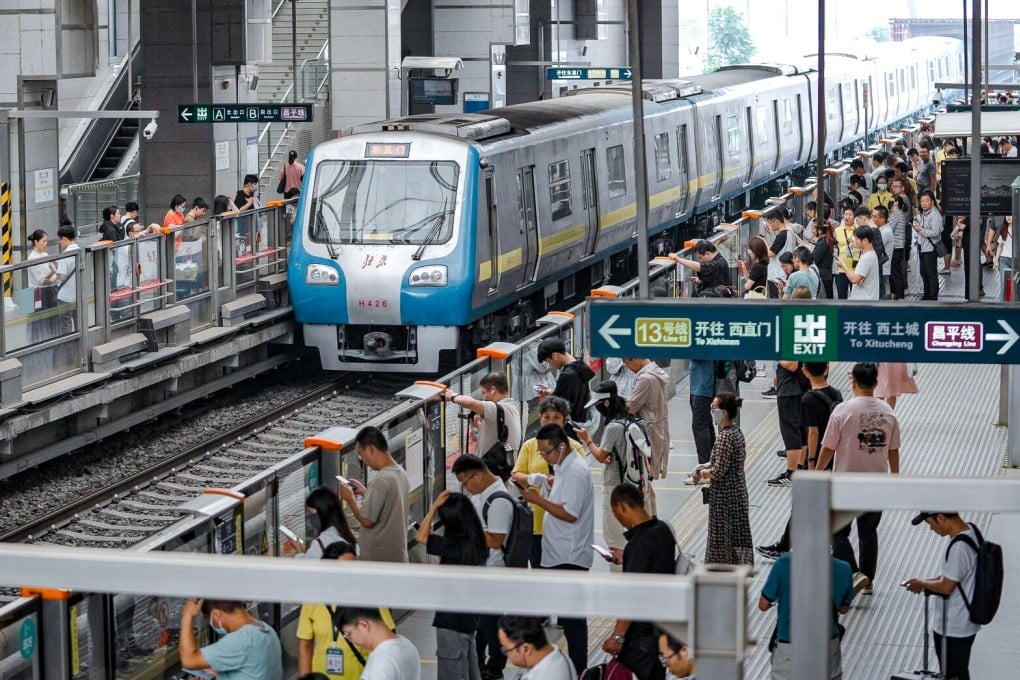China’s costly metro security is straining resources to get economic engine back on track
- Analysts see pros to the security, including guarding against terrorist attacks, but as the public waits in long queues, expenses have people asking how much is too much

At the forefront of subway security, Beijing’s measures taken for the 2008 Olympics have since been implemented throughout China. But that added security has not come cheap, and times are tight enough in the current economic climate that people are increasingly questioning whether the system is worth it.
And in the wake of a high-profile knife attack at a Shanghai metro station last month, some are asking what can be done to improve the system.
Like at most airports, bags must be X-rayed as travellers pass through a metal scanner. And a beep results in face time with a wand-wielding guard who could very well be casting an “arresto momentum” charm with the device as it delays hurried commuters battling rush hour in cities with populations the size of some small countries.
And with major subway systems handling upwards of 10 million passengers a day, those security checks – including staff salaries and technological expenses – have raised questions about balancing public safety and cost-effectiveness.
Liang Pinghan, a professor of politics and public affairs at Sun Yat-sen University in Guangzhou, said there was an “imminent need” to review that balance amid China’s worrisome economic outlook.
“According to the 2022 financial statement of Beijing’s subway system, 11 per cent of operating expenses went to security staff, which didn’t include investments in related equipment,” he told the Post. “It’s an expense equal to the subway’s utilities cost.”
